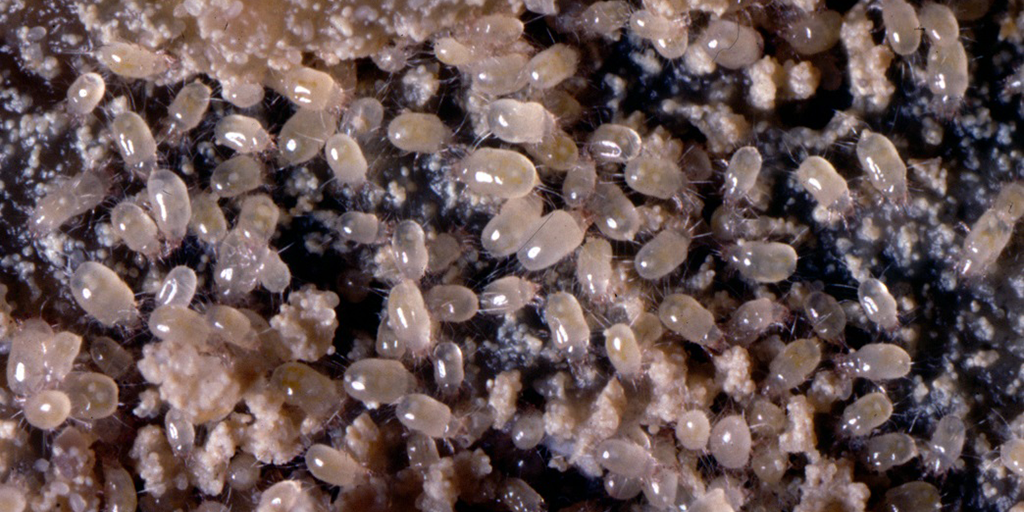Mites are small, typically around 0.5mm and are translucent, making it difficult to detect especially at the early stages of infestation when numbers are relatively low. They can survive for months under adverse conditions in cracks in floor and walls, and in processing and packaging machinery.
Storage mites are important pests for the food and feed industries as they can infest a variety of commodities, especially dried food such as cereals, fruit and plants. If left undetected the damage caused by a mite infestation can lead to direct financial losses through deterioration of food quality, downgrading of products, end-users complaints and rejection of stock.
In addition, storage mites and mite feces are a source of potent allergens in humans and companion animals and contribute to poor performance in livestock.
In the UK, most of Europe and Australia, there is no tolerance of live insects in traded grain, however, thresholds for mites vary and informal limits for many pet foods are below 10 mites per kilogramme. The Codex standard (CODEX STAN 199-1995) for wheat and durum wheat intended for processing for human consumption states that it should be ‘free from abnormal flavours, odours, living insects and mites.’
At Fera, we have developed a package of services that are designed specifically to meet the needs of your customers, from detecting mites early to elimination. Fera is the only company in the UK to offer a mite monitoring service, so if you take pest monitoring seriously Fera's mite services can assist.




